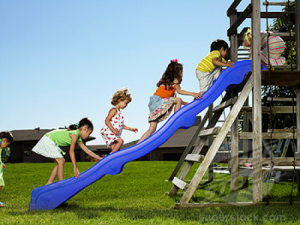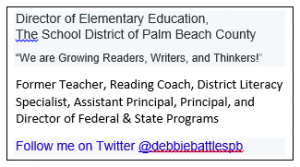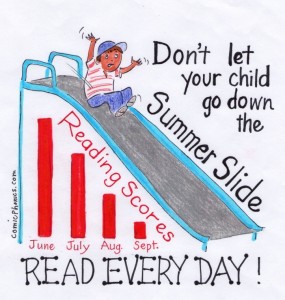When most people hear the words “Summer Slide,” they probably think of something fun like kids sliding down a slide at a local park or even at a water park. Unlike educators who know that a summer slide is a slippery slope that they don’t want their students to have any part of. This slide could have effects on kids that could impact them for years to come!
How to turn the Summer Reading Slide into a Summer Reading Boost seems like a daunting task. Well-documented research spanning over 100 years has proven that when children don’t have access to books over the summer, they suffer the effects of the “Summer Slide.” Disadvantaged children have proven to suffer the most. The most compelling fact is that summer reading loss is cumulative over the years and can add up to a total reading loss of over 2 years by the end of 6th grade.
The solution is actually quite simple! BOOKS, BOOKS, AND MORE BOOKS! In a recent study, Professor Richard Allington of the University of Tennessee at Knoxville and his colleagues found that “giving kids 12 books to read over the summer was as effective as summer school in raising the students’ reading scores.” The increase in test scores was especially pronounced for those who were most economically disadvantaged.
In Allington’s study, children were allowed to choose their own books to increase motivation while increasing their word knowledge on subjects that interested them. The cost of a summer school intervention was estimated at $1,500 per student, while the cost of the books supplied in the Allington intervention was approximately $50 per student.
After reviewing over 60 articles on preventing summer reading loss, the researchers agree on four key components to combatting summer slide:
- Provide students with access to books

- Students are given the opportunity to self-select books that are of high personal interest
- The books they read are on the “just right” reading level (not too easy, not too hard)
- Students are engaged in exciting, motivating, and interactive reading activities
Since the solution is so simple, why aren’t schools and communities making it a priority to provide all of their students with access to books over the summer months? Most elementary school libraries have an average of 2,316 books for every 100 students. That’s over 23 books per student. According to Allington’s study, having access to just 12 books over the summer months can mitigate summer reading loss. In this case, the library would still have half of its books on the shelves. This is an easy solution that doesn’t cost any money other than time to develop a good marketing plan that includes explaining the importance of summer reading and emphasizing to the students and families the importance of taking good care of the books over the summer months so they can be returned and enjoyed by others over and over.
What if the books don’t get returned? An average school library loses approximately 1% of their books annually. As a former elementary principal, I encouraged my students to check out 10 books from our school library during the summer and to return to school during the summer for a book exchange. At the end of the summer, we didn’t lose any more books than we would have typically lost during the school year. In fact, the 1% loss rate remained the same. The benefits of increasing students’ access to books over the summer months, far exceeded the concern of having to replace 1% of our lost books. I think all of us can agree, that is a win-win scenario that not only increase students’ love of reading, but can Turn the Summer Slide into a Summer Reading Boost!
The statistics are compelling and the solution is easy! My challenge to you is to help spread the word and be part of the solution. Together we will make a difference by Boosting our Students into a Universe of Reading! Do you have suggestions on how to mitigate the effects of the summer reading slide and to turn the Summer Reading Slide into a Summer Reading Boost? Please share, I would love to hear your ideas on how we can combat this issue together!
References
Allington, R. L., McGill-Franzen, A., Camilli, G., Williams, L., Graff, J., Zeig, J., Nowk, R. (2010). Addressing Summer Reading Setback among Disadvantaged Elementary Students [Special issue]. Reading Psychology, 31(5). http://dx.doi.org/10.1080/02702711.2010.505165
(http://www.answers.com/Q/How_many_books_are_in_an_average_school_library, 2007)
National Summer Learning Association. (n.d.). Retrieved from http://www.summerlearning.org/?page=know_the_facts



